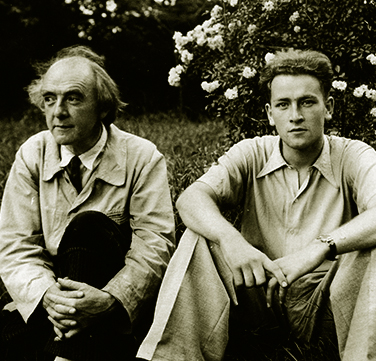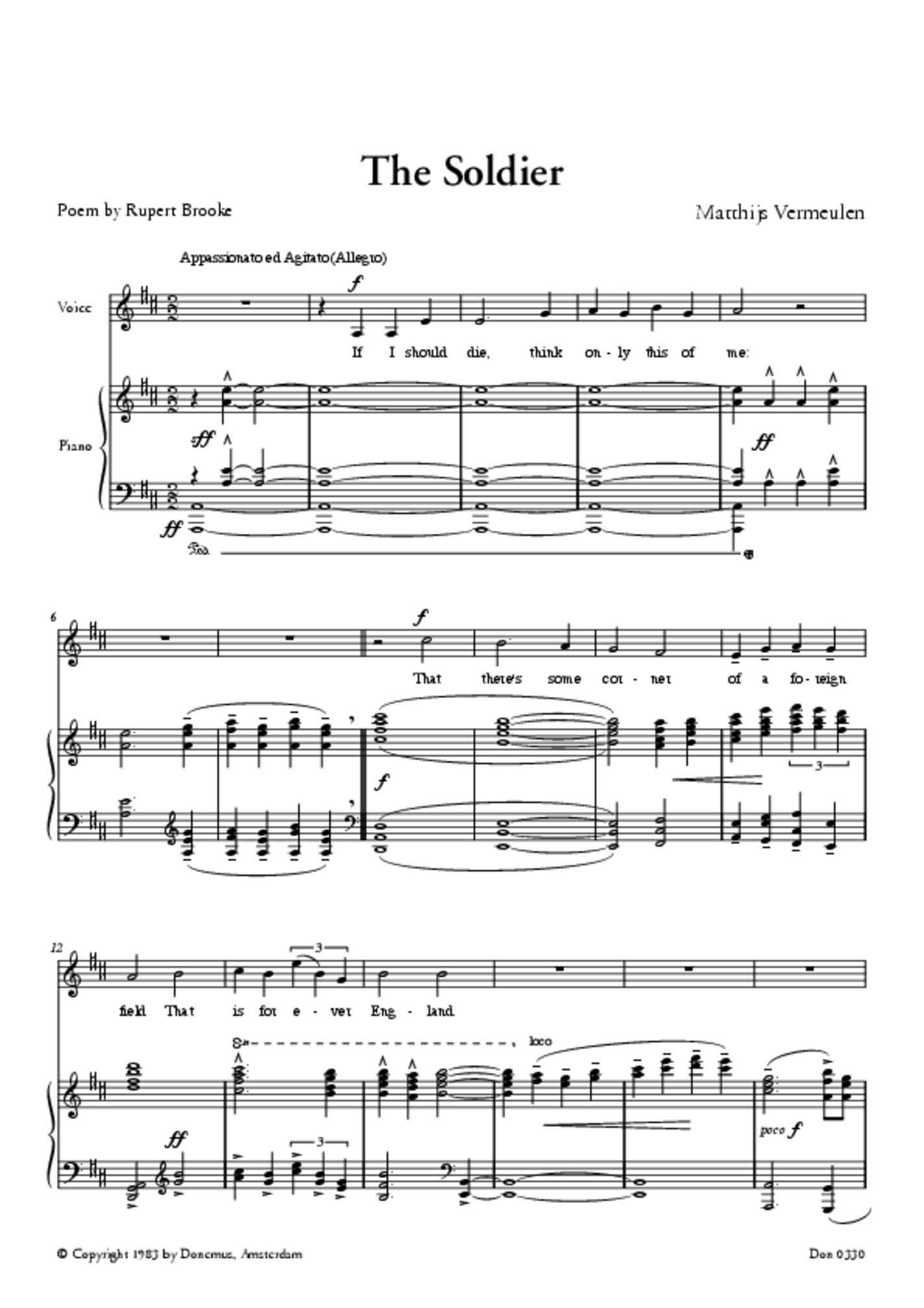MATTHIJS VERMEULEN
Componist, schrijver en denker

THE SOLDIER for baritone and piano (1917)
The Soldier by Rupert Brooke (1887-1915) is an ode to his fatherland. Brooke wrote the poem while he served as a British soldier on the Continent during the First World War. In the sonnet, that is an evocation of his carefree youth, full of sun, the beauty of nature, cheerfulness and happy dreams, the poet expresses the thought that the memory of England will be preserved for ever in the soil of the distant land in which the body of the soldier will be laid to rest. Vermeulen was touched by the esoteric tenor of this poem, in which Brooke seemed to foresee his own death (he died in Greece on 23 April 1915).
Vermeulen's composition is in the mixolydian mode. The poet's delight in the beauty of his native country is conveyed by a melody based on the regular appearance of the perfect fifth. Vermeulen frequently uses parallel motion in the vocal part and in the right hand of the piano, over a sustained bass note. The end of the song appears to express the blissfulness of the memory with an ostinato motive that fades away.
The song was published as an insert in De Nieuwe Amsterdammer (an Amsterdam periodical) of 29 September 1917. A French translation by Elisabeth Diepenbrock-de Jong van Beek en Donk, under the pseudonym Fr. Rivière (beek NL = rivière FR), was printed under the English text. It must have been the intention that in this way this simple song, which can be performed by each type of voice, was also introduced in France and Belgium. Vermeulen may have hoped that it would be sung by soldiers, like Diepenbrock's war song Les poilus de l’Argonne.
The Soldier
If I should die, think only this of me:
That there's some corner of a foreign field
That is forever England. There shall be
In that rich earth a richer dust concealed;
A dust whom England bore, shaped, made aware,
Gave, once, her flowers to love, her ways to roam,
A body of England's, breathing English air,
Washed by the rivers, blest by suns of home.
And think, this heart, all evil shed away,
A pulse in the eternal mind, no less,
Gives somewhere back the thoughts by England given;
Her sights and sounds; dreams happy as her day;
And laughter, learnt of friends; and gentleness
In hearts at peace, under an English heaven.
